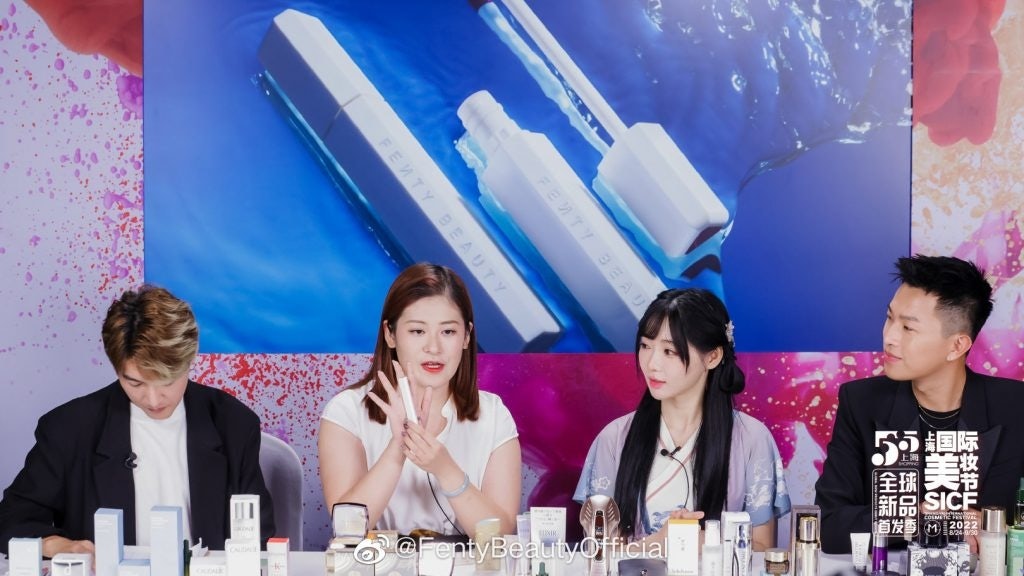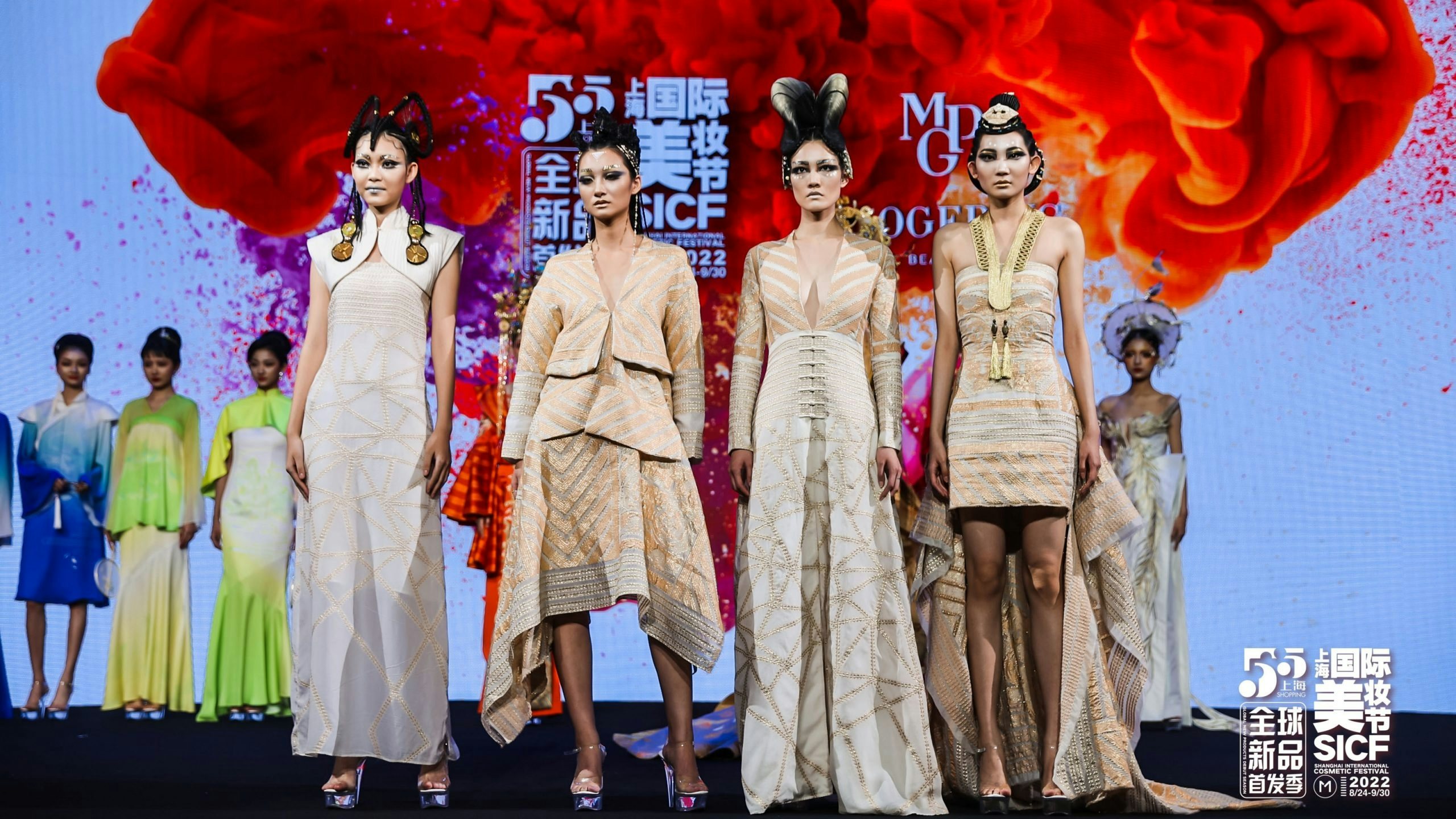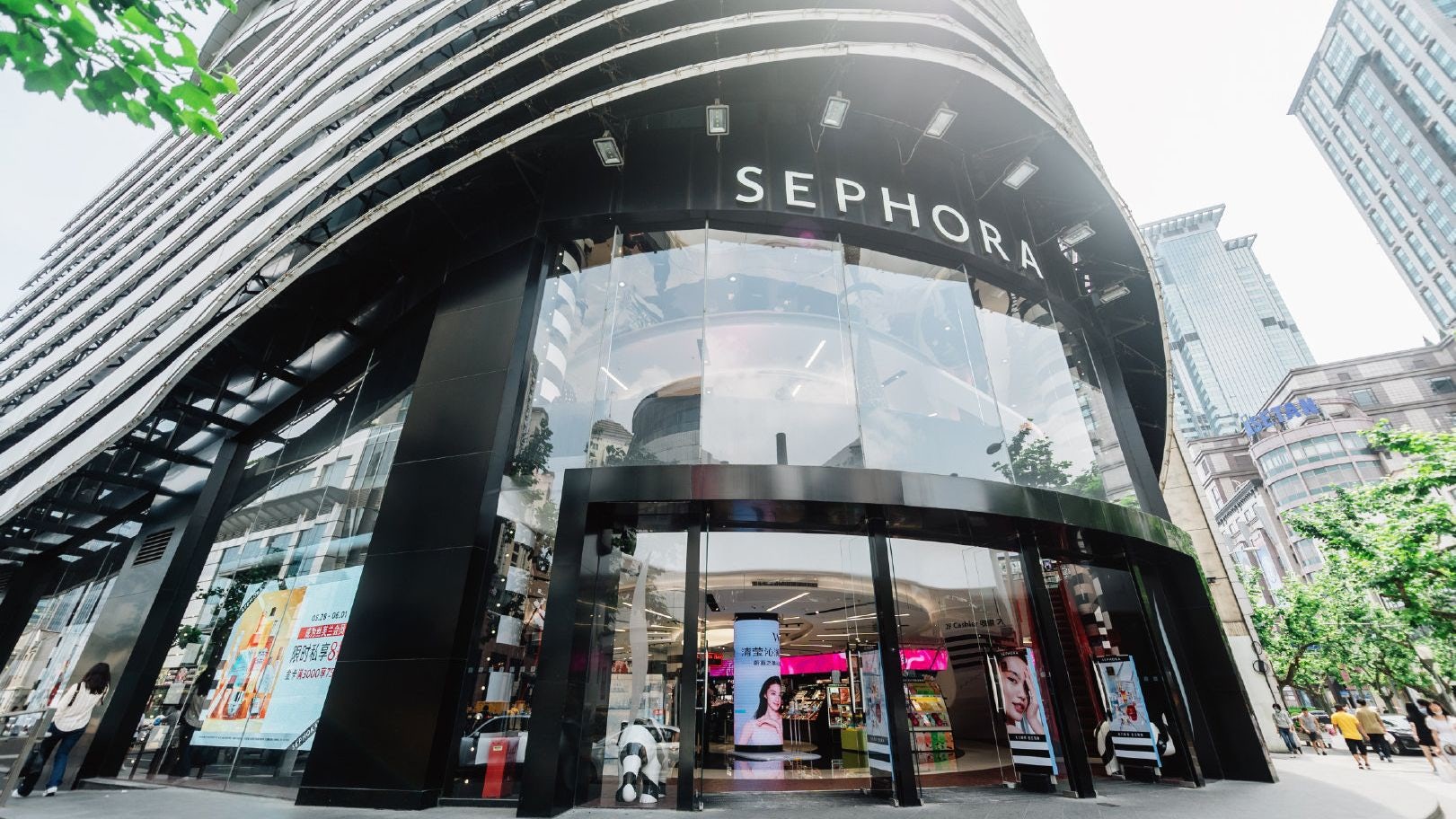On August 25, Shanghai kicked off its third consecutive International Cosmetic Festival as part of the citywide Double Five Shopping Festival. While many know about the Double Eleven Singles' Day Festival, Double Five was recently introduced to revitalize Shanghai’s COVID-19 consumption slump, with a series of events around the city's 16 districts aiming to boost consumer confidence.
“The festival is in many ways a business development exercise from the Shanghai government,” says Clean Beauty Asia’s Allie Rooke. “They want to encourage beauty businesses to open new stores in the district and attract consumers through incentives in the form of vouchers to spend.”
Locating the festival in the Jing’an District is an excellent starting point for foreign brands entering the China market; L'Occitane, L’Oréal, and Sisley from France all have regional headquarters in the district. The government aims to make the district’s West Nanjing Road “a shop window” for local and global cosmetics labels to develop new trends together. It was also announced via Chinese news sources that the government will introduce a one-time monetary incentive of up to 860,000 (6 million RMB) if cosmetics outfits do decide to establish their regional headquarters in the area.
Last year’s festival saw a total of 24 international and domestic houses roll out new product offerings. While this figure may seem low, the idea is also to promote the exchange of ideas, the latest trends, and innovative designs. This year’s festival aims to up numbers as it takes place both offline, online, and in the metaverse.
Bricks-and-mortars still matter in beauty, and many players aim to open new shops to launch product lines like lipsticks from L’Oréal or facial masks from homegrown venture Glowis. In addition, as part of the festival, the newly renovated Beauty Floor in the Réel Mall will introduce a Prada perfume store and a Matière Premiere and Etat Libre D'Orange outlet (both French perfumeries). Rooke from Clean Beauty Asia also revealed that Hourglass, the American makeup beauty firm, has just received product registration so it can open its doors in the mall. Others expected to introduce a physical shop include La Bouche Rouge and domestic concern Uniskin.
As well as physical stores, the e-commerce giant Tmall will provide exclusive venues for festival participants to view maisons’ livestreams. Rooke adds that “this has gained a lot of support from livestreamers and KOLs as it appeals to Gen Z.” Jing'an has also cooperated with both international and domestic houses to launch the "Xiyang Yuan Universe," broadcasting the festival in the virtual world — and bringing beauty into the Chinaverse.

Commercial shops and e-commerce platforms are even joining hands. For example, this year Shanghai's Jiuguang Department store will hold the International Cosmetic Festival with Bilibili (a Chinese video-sharing platform that has ventured into e-commerce) to display new products and launch activities for brand interaction with consumers.
Participating labels such as Fenty, so far the only cross-border e-commerce “CBEC” present at the festival (a market access route for international cosmetic companies to circumvent animal testing and other requirements), have already started live-streaming press events. Integrated digital activities highlight important lessons for global lines in utilizing technology. One example being how the L’Oréal group leveraged its local e-commerce channels during Tmall’s 618 Shopping Festival that led to a record market share in the mainland for the first half of 2022, despite Shanghai lockdowns disrupting supply chains.
China’s Gen Z are looking for new ways to combine technology with their shopping experiences, and beauty names should up their virtual game to succeed in this market. Doubling down on the country’s digital prowess is all well and good, but brands need to be aware of the latest trends to reach its tech-savvy audiences. At a time of sporadic lockdowns, the Jing'an event aims to enhance the Shanghai metropolis' allure as a global hub for beauty and skincare.

